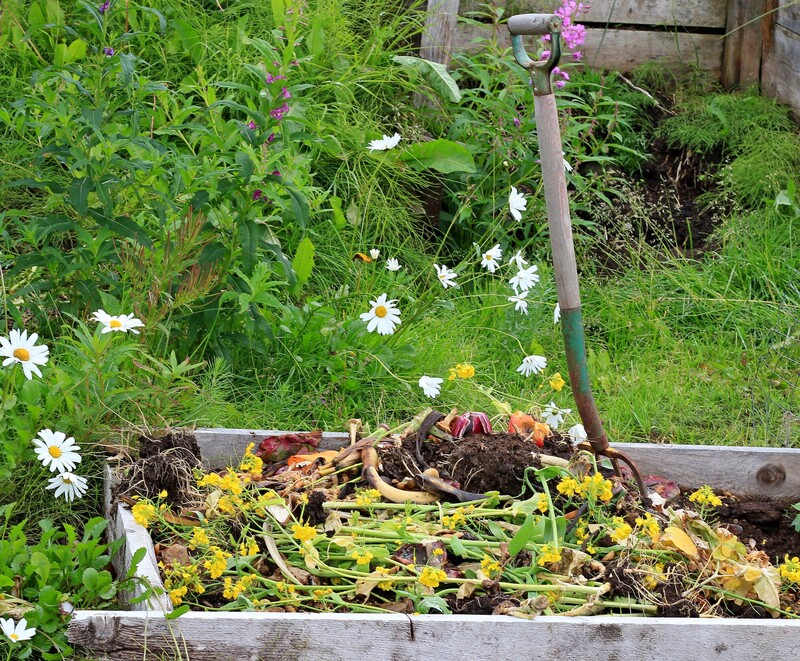Reduce Waste by Recycling Your Old Pots and Pans
Our kitchens are filled with a variety of cookware, from sturdy cast iron skillets to nonstick frying pans and stainless steel pots. Over time, even the best quality pots and pans can become scratched, warped, or simply obsolete as our kitchen needs change. Rather than throwing these items away and adding to the ever-growing problem of landfill waste, you can choose to reduce waste by recycling your old pots and pans.
Why Recycling Cookware Matters
Every year, millions of pounds of metal end up in landfills. By choosing to recycle your old cookware instead of discarding it, you help to conserve valuable resources, reduce your environmental footprint, and support the circular economy. But how exactly does recycling old pots and pans help reduce waste?
- Preserving natural resources: Recycling metals cuts down on the need for new raw materials, lowering mining and extraction activities.
- Saving energy: Producing items from recycled metals uses less energy than from virgin ore, easing the burden on our planet.
- Reducing landfill overflow: Cookware can take decades or centuries to break down in a landfill, contributing to environmental harm.
- Supporting sustainable industries: The scrap metal industry uses recycled cookware for new products, keeping valuable materials in use.
Environmental Impact of Disposing Cookware
Many pots and pans are made from metals such as aluminum, stainless steel, and copper--materials that are infinitely recyclable. When tossed in the trash, these items squander the energy and resources used to produce them. Nonstick coatings, plastics, and handles made from synthetic materials can further harm the environment when sent to landfills, potentially leaching toxins.

Types of Cookware You Can Recycle
Before you begin, it's important to know which old pots and pans can be recycled and which need special handling. Here is a breakdown:
- Aluminum cookware: Lightweight and rustproof, often fully recyclable after removing handles or plastic parts.
- Stainless steel pots and pans: Highly recyclable. Like aluminum, remove non-metal parts first.
- Copper pans: A valuable recyclable material, but composite pans with multiple layers require sorting.
- Cast iron skillets: Extremely durable and recyclable, but often better to donate or refurbish due to longevity.
- Nonstick cookware: Most scrap yards require Teflon or ceramic coatings to be removed first, posing extra steps.
- Enamel-coated pots: These may be more difficult to recycle due to mixed materials but some specialized facilities will accept them.
What About Non-Metallic Cookware?
Pots and pans with silicone, plastic, glass, or wooden handles require special consideration. Some recycling facilities accept items with minor non-metal elements, while others may require you to remove all attachments prior to dropping them off. Check with your local recycling center for their specific guidelines.
How to Prepare Old Pots and Pans for Recycling
Recycling centers and scrap yards have specific requirements to ensure safe and efficient processing. Follow these steps to prepare your cookware for recycling:
- Remove non-metal parts: Detach plastic or wooden handles, lids, knobs, and any silicone pieces.
- Clean thoroughly: Wash away food residue or grease to avoid contamination.
- Disassemble as much as possible: For multi-material pots and pans, break down into pure metal and separate components when feasible.
- Check for coatings: If your pan has a nonstick or enamel coating, confirm with your local recycling facility if they can process it.
- Sort by material type: Sort items by metal (aluminum, stainless steel, copper, etc.) as required by your recycling provider.
Tools You May Need
- Screwdriver for removing handles and knobs
- Pliers or a wrench for stubborn parts
- Soap and scrubber for cleaning
Tip: Recycling centers often pay for scrap metal by weight, so the more cookware you collect, the better!
Where to Recycle Old Pots and Pans
Now that your cookware is prepped, it's time to find the right place to recycle pots and pans near you. Here are your main options:
1. Local Scrap Metal Yards
Most metal scrap yards accept cookware, especially those made from aluminum, copper, cast iron, and stainless steel. Bring your old kitchenware in and ask for their specific rules on coatings and materials. You might even earn a small amount of cash!
2. Municipal Recycling Centers
Some city and county-run recycling centers have drop-off points for recycling old cookware. Check your town's website, or call ahead to see which items they accept. Not all centers process cookware due to coatings or attached non-metals, so always verify first.
3. Special Collection Events
Many communities host annual or semi-annual recycling events for bulky metal items, electronics, and household goods that can't be recycled curbside. Watch for notices about these events or look them up online.
4. Appliance and Cookware Retailers
- Some retailers offer "take-back" programs when you purchase new pots or pans from them.
- Trade-in programs may also offer store credits or discounts toward new cookware when recycling old pots and pans.
5. Mail-back Recycling Programs
Several national brands and organizations provide mail-in recycling options for cookware. These programs often accept metal cookware by mail for proper recycling.
What About Recycling Non-Recyclable Cookware?
If you find that your cookware cannot be processed by local recycling centers, do not despair! You can still reduce waste from your pots and pans through other means, such as donation, upcycling, or creative reuse, which we'll cover next.
Alternative Ways to Reuse Old Pots and Pans
Not all cookware is ready for the scrap heap. Many pieces, especially those that are still functional, have value well beyond their original purpose. Consider these ideas to give your old pots and pans a second life:
Donate to Charity or Thrift Stores
- Charities and thrift shops welcome usable cookware for people in need or looking for affordable household goods.
- Shelters, soup kitchens, and community kitchens often need extra cookware.
Hand Down to Friends or Family
Younger family members, friends heading to college, or first-time renters may appreciate serviceable pots or pans to get them started.
Upcycle into Creative Projects
- Planters: Turn deep pots, saucepans, or Dutch ovens into unique planters for flowers, herbs, or succulents.
- Birdbaths or Feeders: Use shallow pans as the base for garden birdbaths.
- Decorative storage: Hang pans on the wall for rustic storage or display, or use them to organize tools and odds-and-ends in the garage.
- Art Projects: Nonstick or copper pans can be painted, engraved, or incorporated into sculptures and signs.
Repurpose for Camping or Outdoor Use
- Retired cookware works well around the campfire--no worry about scratches or dents!
- Use as outdoor water bowls for pets or livestock on a farm.
Tips for Minimizing Cookware Waste in the Future
The best way to manage kitchen waste is to make mindful choices from the start. Here are some sustainable tips to reduce kitchen waste and recycle pots and pans responsibly long-term:
- Invest in high-quality, long-lasting cookware that can be refurbished or passed down.
- Avoid disposable or cheap cookware that is likely to wear out quickly and end up in a landfill.
- Repair rather than replace: Many cookware pieces can be restored with new handles or professional re-coating.
- Purchase from brands with recycling or trade-in programs to ensure end-of-life disposal is handled responsibly.
- Practice proper care: Extending the life of your pots and pans reduces the need for frequent replacement and waste production.
Common Questions About Recycling Old Pots and Pans
Can I Put Old Pans in the Curbside Recycling Bin?
Generally, no. Most municipal curbside programs are not equipped for bulk metals or complex items. Improperly disposing of cookware curbside may result in contamination or items being sent to landfill. Instead, take them to a dedicated scrap metal recycling facility.
How Do I Know If My Cookware Is Accepted?
Always call ahead or check online with your local recycling center, scrap yard, or retailer for specifics on coatings, multi-material items, or nonstick pans.
What If My Pans Have a Nonstick Coating?
Some scrap yards do not accept Teflon or ceramic coated pans. If you can't safely remove the coating, consider donating, upcycling, or mailing your cookware to specialized recycling services.
Can Old Cookware Be Dangerous to Use?
Yes--scratched nonstick coatings or damaged lining can release unsafe chemicals or contaminate food. If your old pots and pans are unsafe, recycle or dispose of them properly.

The Key Takeaways: Make a Positive Environmental Impact
Reducing waste by recycling your old pots and pans is one of the simplest and most effective ways you can help the environment right from your kitchen. The key points to remember are:
- Recycling cookware reduces landfill waste and conserves resources
- Proper preparation and sorting are essential for successful recycling
- Alternative methods such as donation and upcycling are just as impactful
- Sustainable kitchen practices help create a circular economy
By choosing to recycle your old cookware, you ensure that valued metals and resources are reused rather than wasted. Even when your pots and pans are too worn for cooking, they can still serve a useful role--whether in art, gardening, or as part of a new batch of recycled goods. Take the next step to reduce kitchen waste and build a more sustainable future.
Start Recycling Your Old Pots and Pans Today!
Are you ready to clear out your clutter, help the planet, and give your cookware a new purpose? Check your local recycling options, gather your old pots and pans, and make the eco-friendly choice. Your actions matter!
Do you have unique tips for recycling or repurposing cookware? Share your ideas--and let's work together to keep kitchen waste to a minimum!
